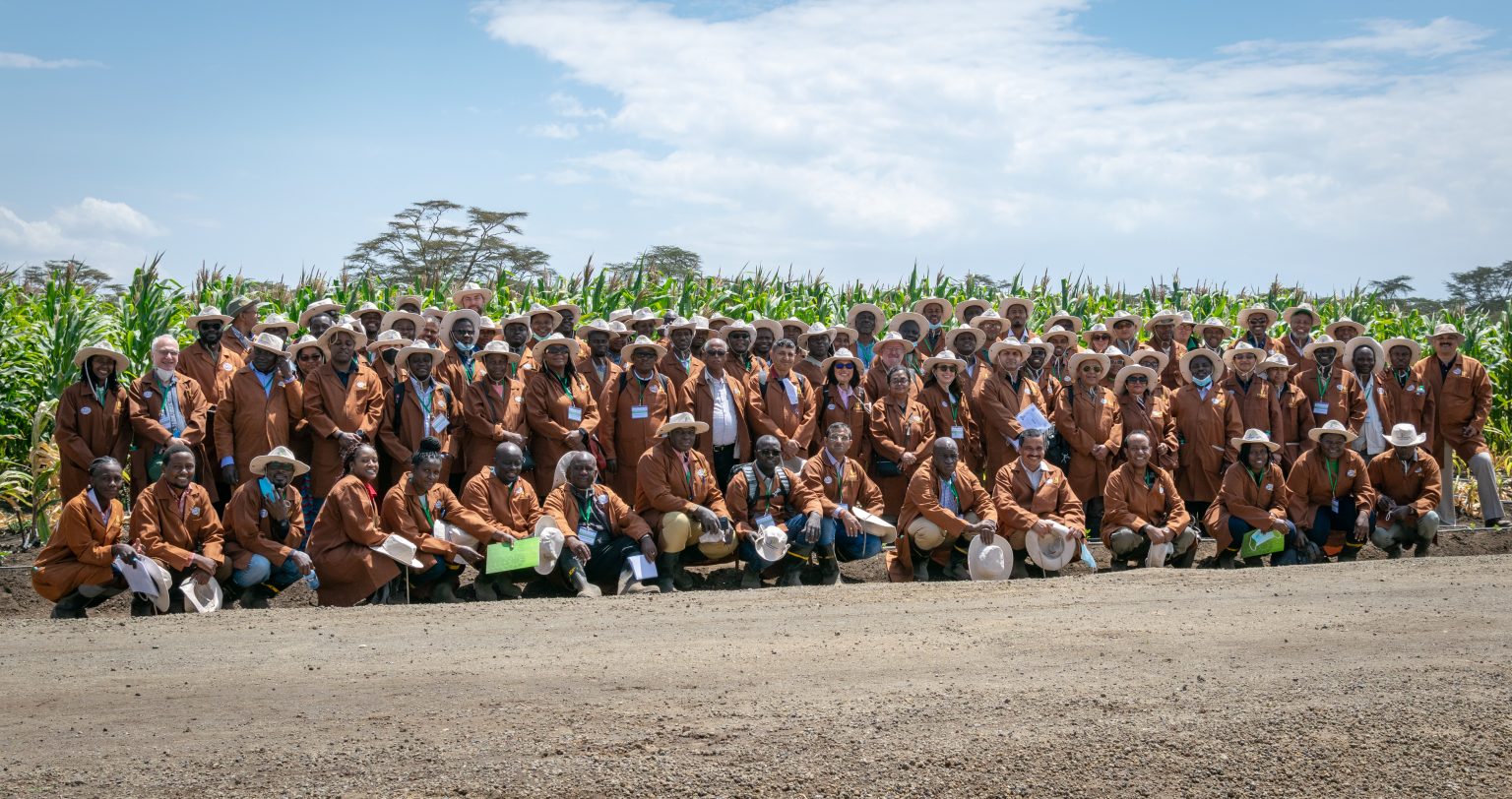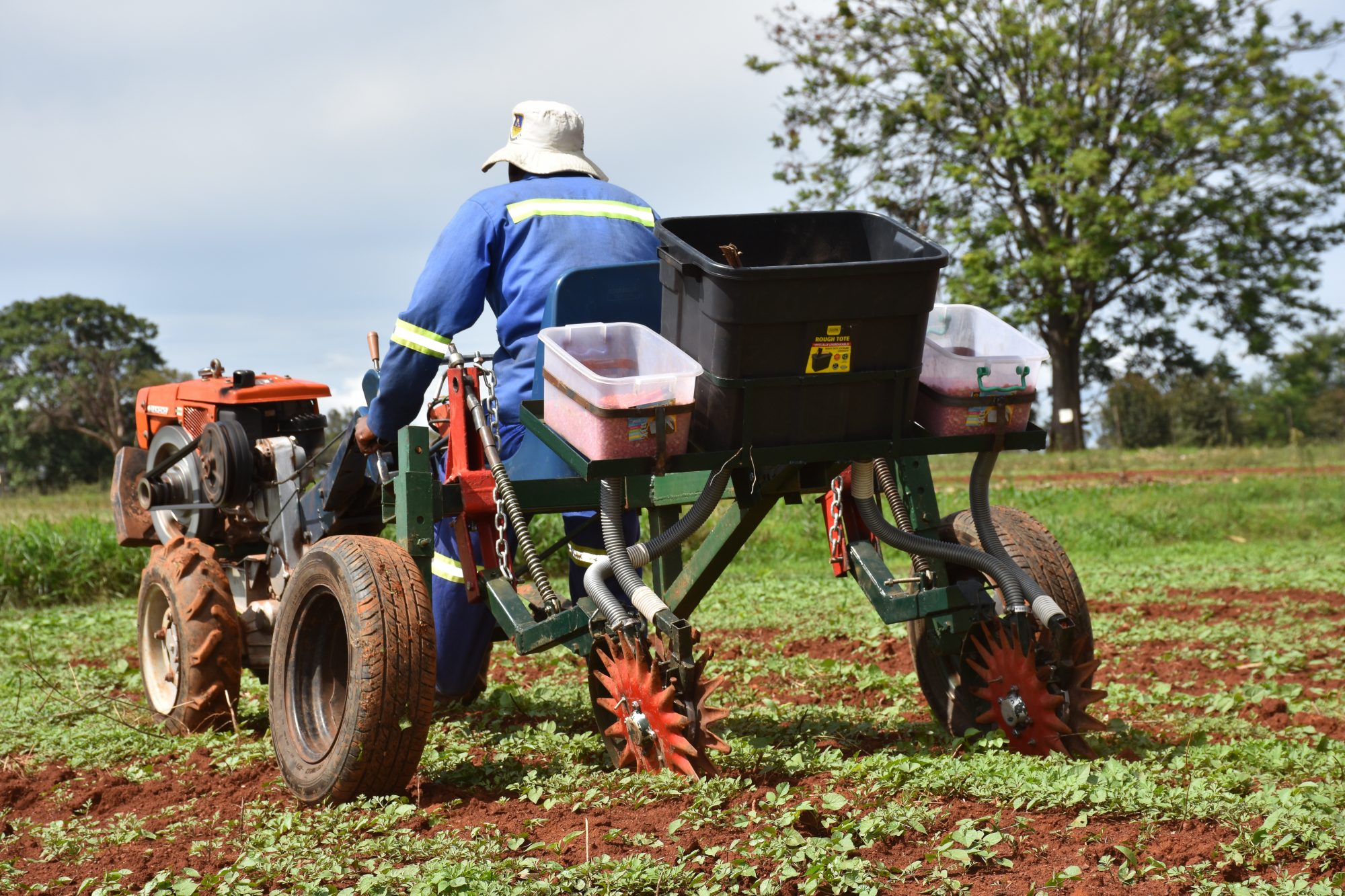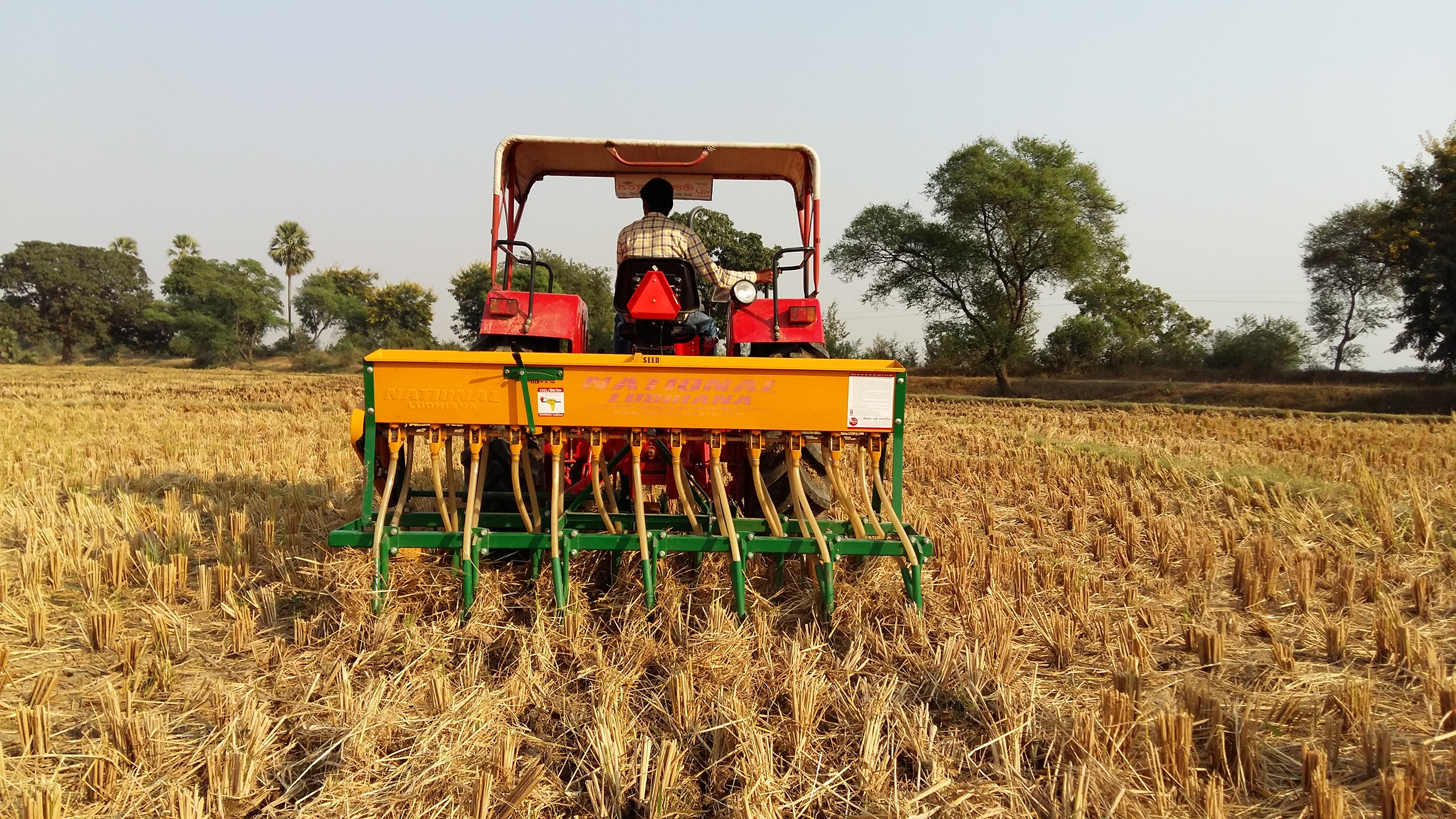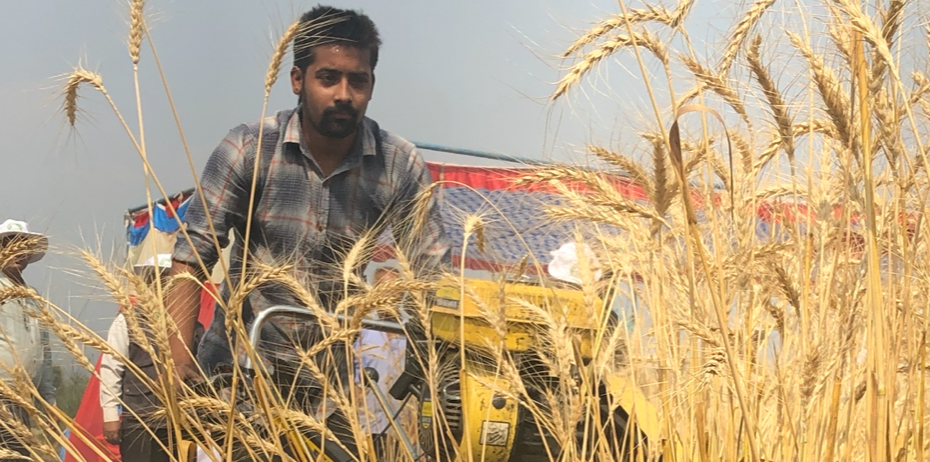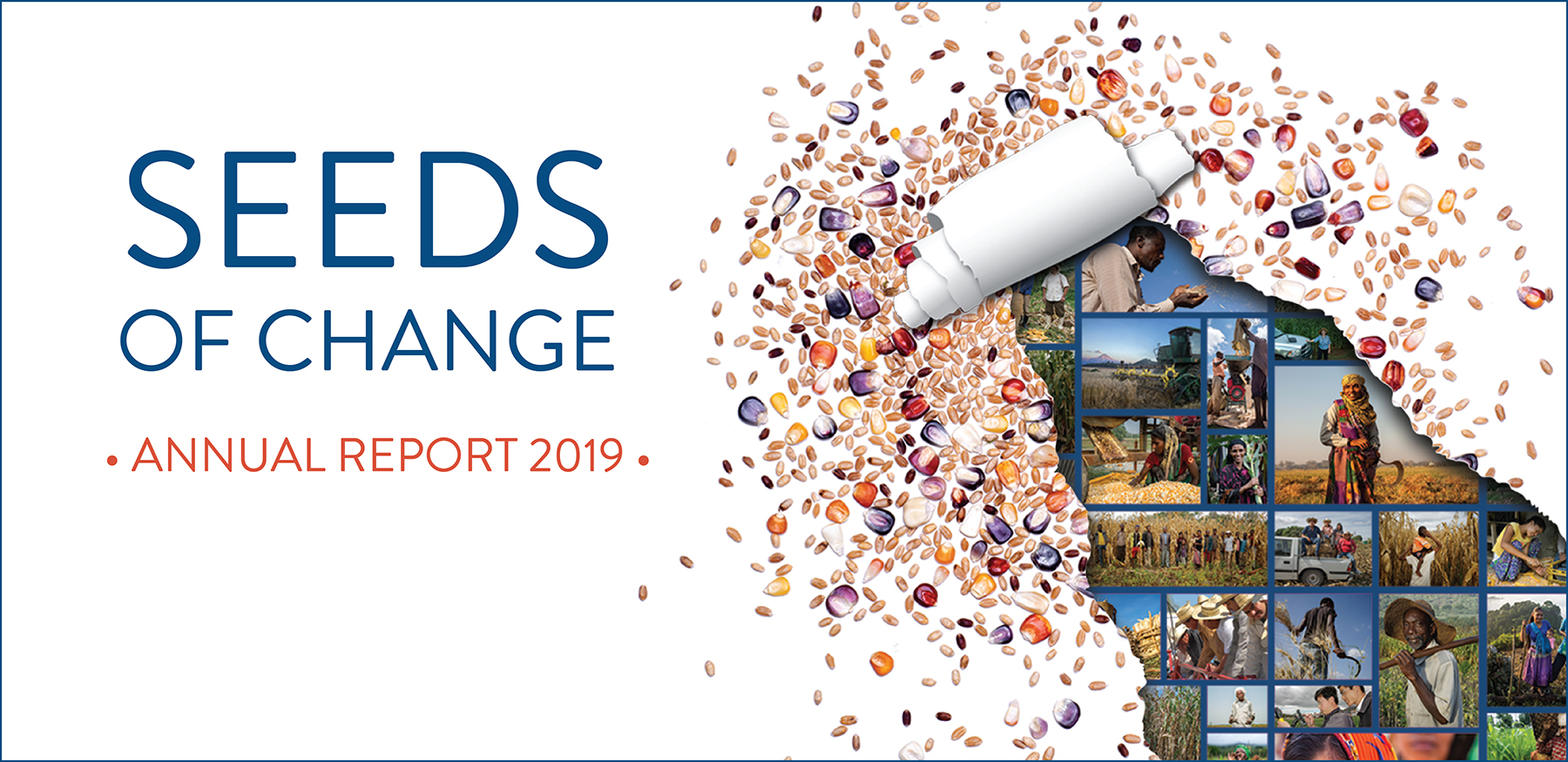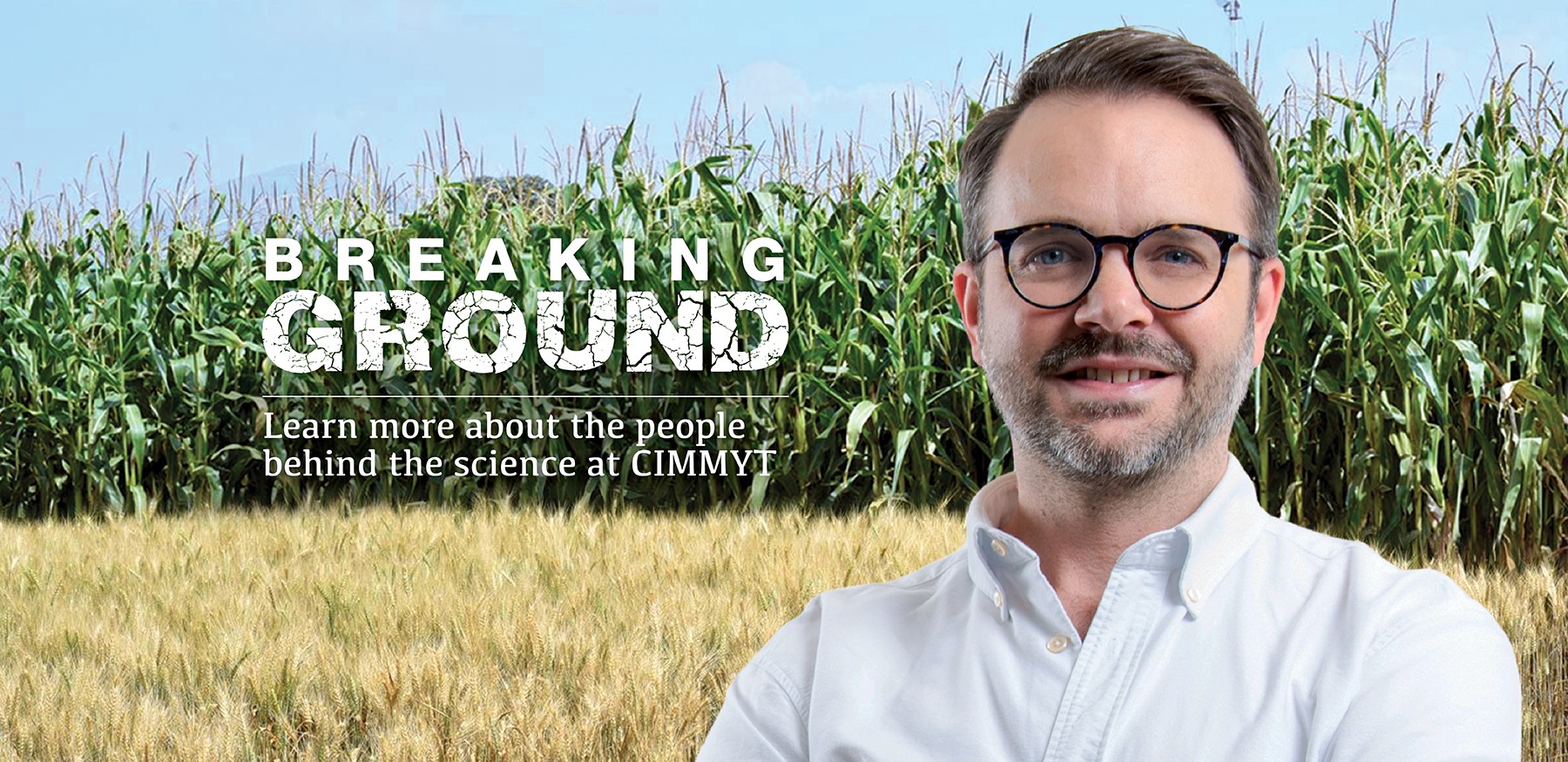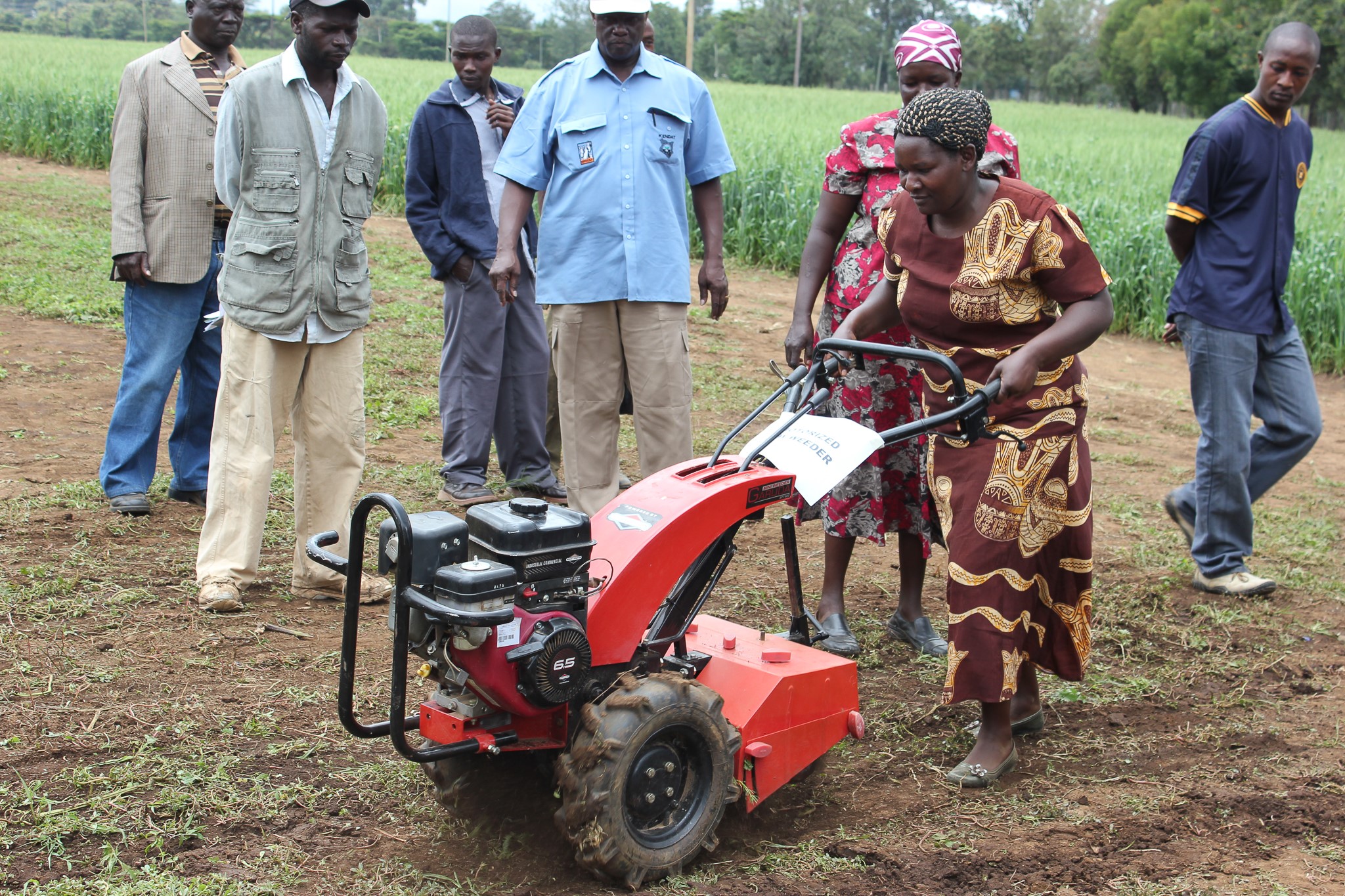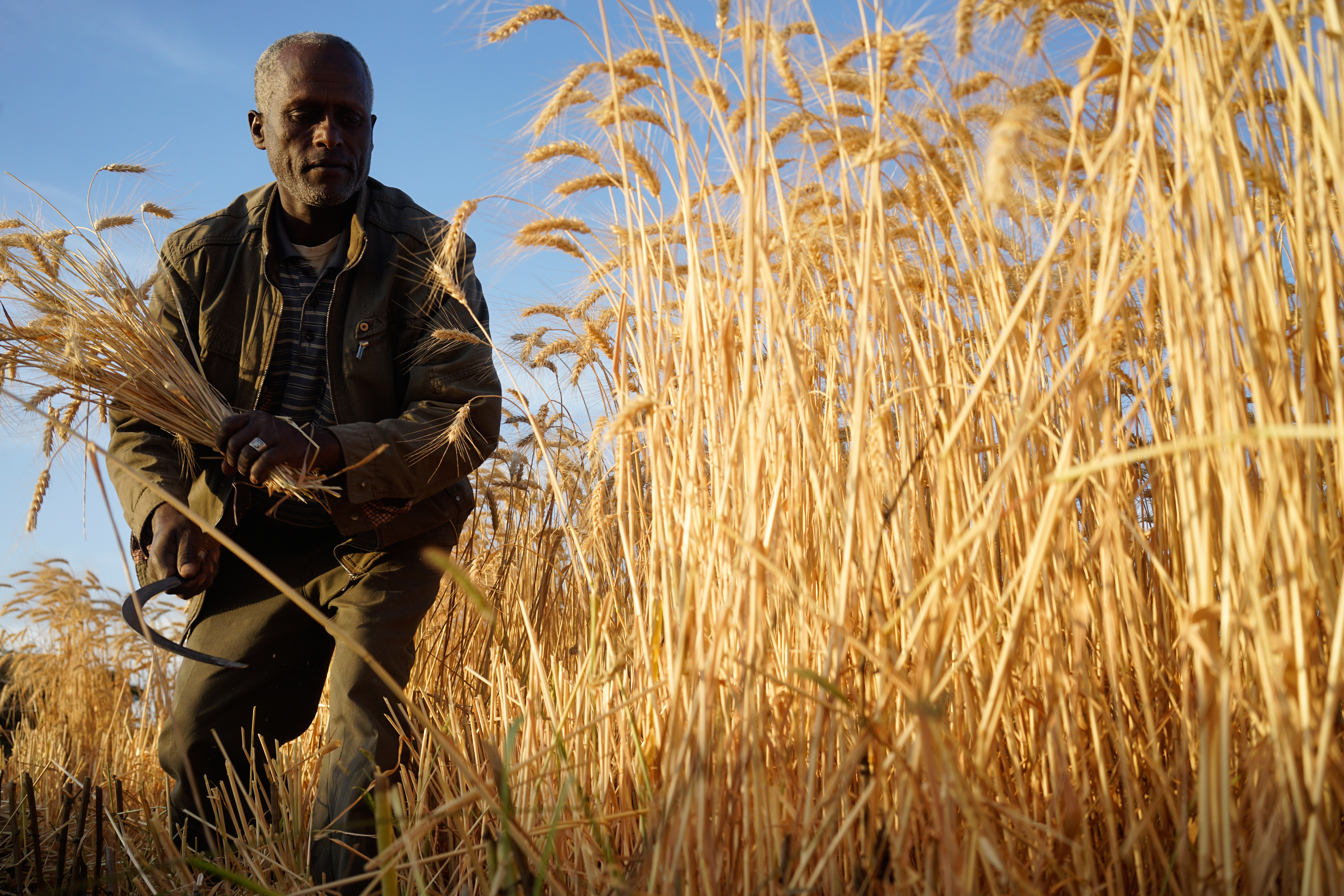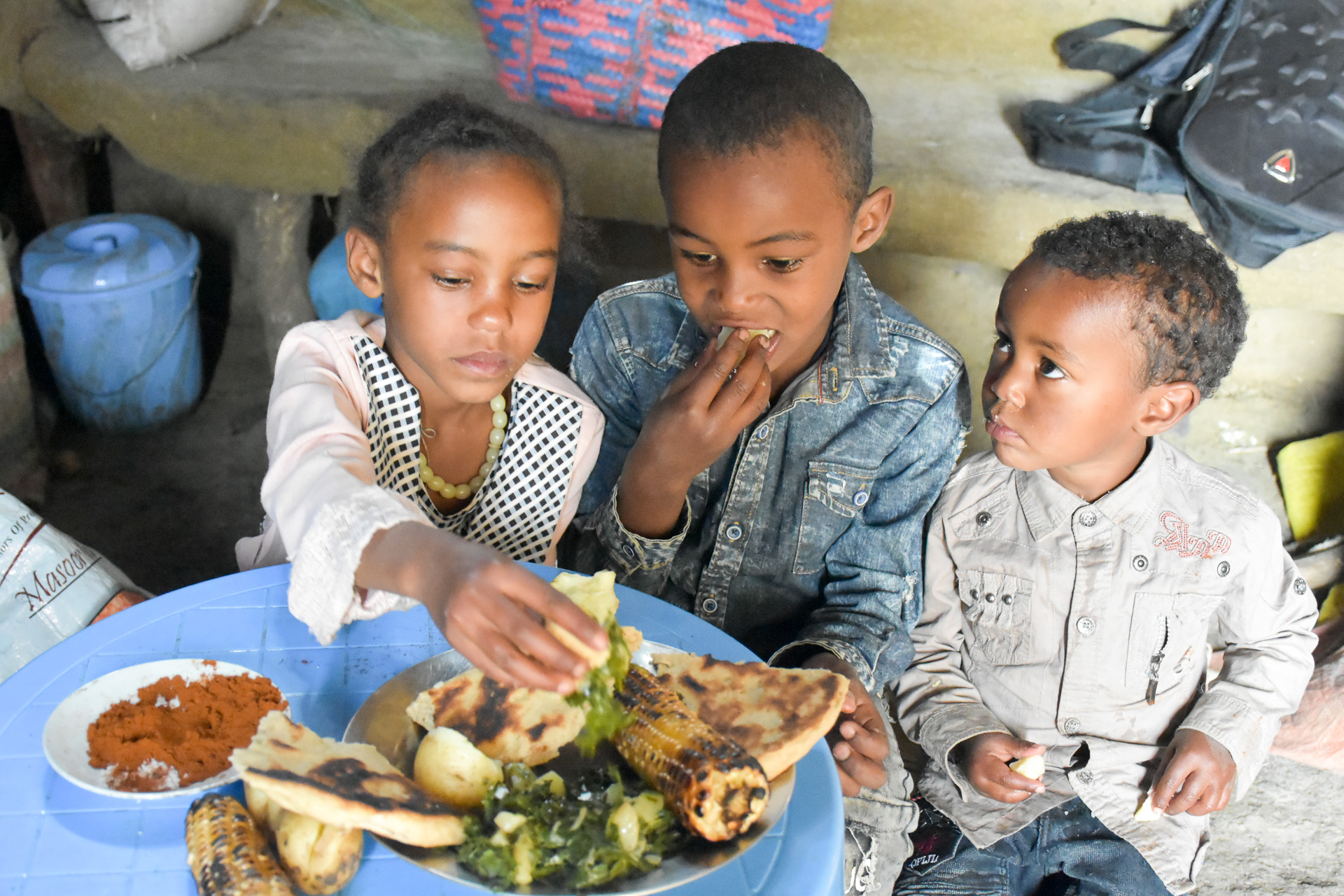Innovations
Working with smallholders to understand their needs and build on their knowledge, CIMMYT brings the right seeds and inputs to local markets, raises awareness of more productive cropping practices, and works to bring local mechanization and irrigation services based on conservation agriculture practices. CIMMYT helps scale up farmers’ own innovations, and embraces remote sensing, mobile phones and other information technology. These interventions are gender-inclusive, to ensure equitable impacts for all.
Back to basics: COVID-19 labour crunch brings direct seeding of paddy in focus
 Innovations
Innovations
Source: Down to Earth (15 Jul 2020)
While an estimated 10 percent of India’s 44 million ha of rice is cultivated through direct seeding, the COVID-19 pandemic could lead to an increase in this practice.
New analysis to help in creating yellow rust resistant wheat
 Innovations
Innovations
Source: World Grain (15 Jul 2020)
CIMMYT scientists perform large genome-wide association study in India, Kenya and Mexico to understand yellow rust resistance in wheat.
Cheap maize sheller saves farmers tens of hours
 Innovations
Innovations
Source: Farm Biz Africa (12 Jul 2020)
CIMMYT research affirms time and cost-saving advantages of sheller for smallholder maize farmers in Kenya.
Small is beautiful
 Gender equality, youth and social inclusion
Gender equality, youth and social inclusion
7 ways to make small-scale mechanization work for African farmers.
Could coronavirus drive farmers to adopt sustainable practices in India’s breadbasket?
 Climate adaptation and mitigation
Climate adaptation and mitigation
Interest in farm machinery and crop diversification spike as farmers respond to COVID-19 labor shortages.
Mechanized harvesting fuels rural prosperity in Nepal
 Innovations
Innovations
The tractor-mounted reaper saves farmers time and money and offers new sources of income.
Annual Report 2019 launched
 Innovations
Innovations
CIMMYT’s work may begin with seeds, but our innovations support farmers at all stages of the value chain.
International program ushers in a new era of maize farming in Pakistan
 Innovations
Innovations
Agricultural Innovation Program (AIP) comes to a close but its impact lives on.
Turn annuals into perennials. Does the farmer want that?
 Innovations
Innovations
Source: Trouw (28 Jun 2020)
Opinions differ on if world food production could be improved if annual crops, such as maize, rice, wheat and vegetables, could be turned into perennials.
Breaking Ground: Lennart Woltering is a catalyst for achieving sustainable impact at scale
 Gender equality, youth and social inclusion
Gender equality, youth and social inclusion
CIMMYT Scaling Advisor emphasizes importance of context and systemic thinking in how we do our research and implement projects.
African small-scale mechanization project winds down after strong results
 Gender equality, youth and social inclusion
Gender equality, youth and social inclusion
The two-wheel tractor has proven its worth in Africa’s smallholder farms thanks to the FACASI project.
Reaping the benefits of innovation
 Capacity development
Capacity development
Service provider harvest model could create opportunities for young African entrepreneurs while reducing carbon emissions.
Farmers diversify crops in their fields and food on their plates
 Innovations
Innovations
Two-wheel tractors are allowing Ethiopian farmers to boost their incomes and support their communities in times of need.
Interdrought 2020 congress proceedings now online
 Climate adaptation and mitigation
Climate adaptation and mitigation
Presentations, abstracts and posters of major conference about agricultural production in water-limited environments are available for free.
